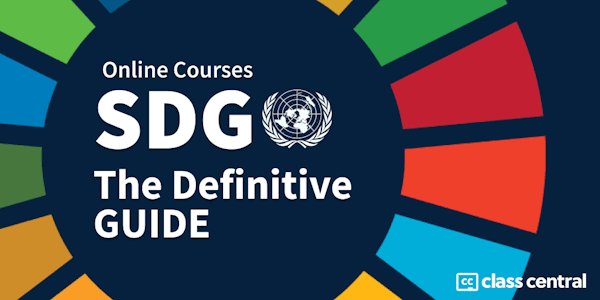Overview
In this course, you’ll learn to analyze rapidly changing global trends, their effects on consumer and labor markets, financial systems, and geopolitical relationships among countries all over the world. Professor Mauro Guillen of the Wharton School has designed this course to help you understand the magnitude of influence these trends have on the business world and society. Through real-world case studies, both historical and contemporary, you’ll examine how changes within one society affect others. By the end of this course, you’ll have gained the tools to be able to identify, analyze, and adapt to global changes as they affect your business and society.
Syllabus
- Module 1: People and Markets Around the World
- In this module, we’ll begin by examining the relationship between population size and density to the geopolitical balance of power in the world. You’ll learn key aspects of demographics (such as total fertility and life expectancy at birth) and how rapid demographic growth or decline affects global economic and geopolitical dynamics. Then, you’ll evaluate the economic and political impact of urbanization and migration within societies, and the consequences of these changes in population dynamics, both within a society and between countries. By the end of this module, you’ll have a richer understanding of the impact of demographic trends on financial markets, political systems, culture, and society.
- Module 2: Money Around the World
- This module was designed to give you a deeper understanding of how monetary trends and the distribution of monetary wealth affect the globe. Through close examination of global poverty and income inequality, you’ll learn critical concepts such as the Gini Coefficient and the Kuznets Curve, and how to use them as tools in analyzing the global distribution of wealth. You’ll also explore the rise of the global middle class, and how businesses are responding to the growth of middle class consumption. Finally, you’ll investigate the relationship between changing gender dynamics and wealth in the world. By the end of this module, you’ll be able to use effective analytical tools to form a clearer understanding of the effect of wealth within society and how it affects your organization.
- Module 3: Global Economic and Financial Imbalances
- In this module, you’ll examine the growing issue of global economic and financial imbalances. Through relevant examples such as the European Zone crisis, you’ll gain a deeper understanding of the effects of global economic dynamics on both individual countries and their relationships with one another. You’ll explore trade bloc controversies, different types of monetary unions (such as the European Union), and how financial imbalances affect the geopolitical balance and global economy. By the end of this module, you’ll be able to better assess the consequences of economic and financial imbalances on nations, markets, and societies, and be prepared to respond to these phenomena while making decisions for your organization and society.
- Module 4: The Shifting Geopolitical Landscape
- In this module, you’ll explore global geopolitical landscapes and the global powers of the 21st century. Through examination of different political regimes—from autocracies to democracies—you’ll discover effective roles for states to play in society and its economy. You’ll also learn about failed states and anocracies, two importance sources of instability in the world, and how such instabilities manifest frictions and conflicts in the form of war and terrorism. Through analyzing the evolution of political regimes and failed states, you’ll learn the definition of global powers, the difference between and hard and soft power resources, and whether emerging global powers will cause dramatic changes in the existing geopolitical power structure. By the end of this module, you’ll have a deeper understanding of the trajectories of global powers, and be able to assess how the changes in geopolitical power structure will affect your business and society.
Taught by
Mauro Guillén
Reviews
5.0 rating, based on 1 Class Central review
4.8 rating at Coursera based on 912 ratings
Showing Class Central Sort
-
I want complete this course. Because i think if you know world business trend, than we can make decision what is to be done.






